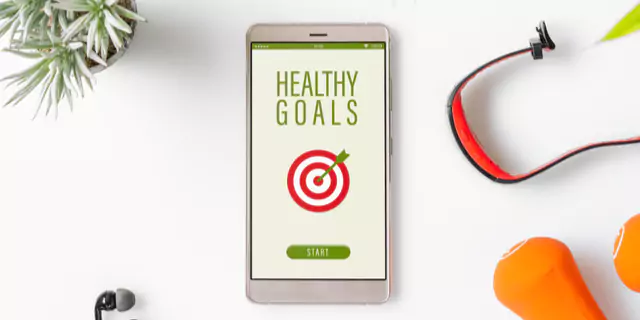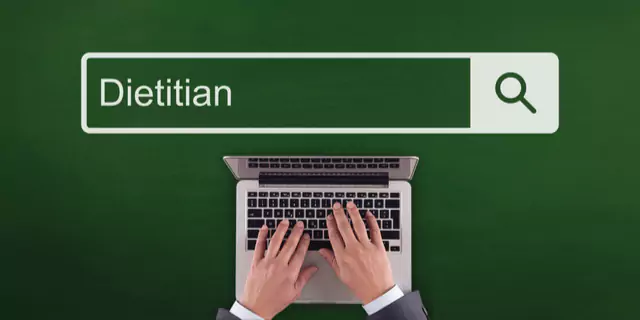Get the Most Out of Your Nutritionist: Tips and Strategies for Optimal Results

Key Takeaways
To get the most from your nutritionist, prepare to discuss specific goals and ask detailed questions. Use your sessions to interpret personal health data, build sustainable habits, and create a personalized plan that fits your lifestyle for lasting results.
Highlights:
- Ask your nutritionist how specific nutrients like fiber and healthy fats affect your personal glucose data to build a better relationship with food.
- Review the "Discuss this" sections on this page for questions about meal experiments, metabolic health, and building new habits.
- Your 1:1 video calls with a registered dietitian may be covered by your insurance plan with a $0 out-of-pocket expense - eligibility varies.
Why Work with a Nutritionist?
Unless you have specific health issues or you’re looking for help with a particular diet plan, you may not have thought about contacting a nutritionist. After all, how difficult can it really be to start eating healthy on your own? While it is possible to do so, you can miss out on getting interesting insights into your specific health needs without a nutritionist.
Working with a nutritionist is always helpful, whether you’re trying to lose weight, optimize your health, address unhealthy habits, or figure out why you’re getting specific cravings. Not everyone reacts the same way to food, so zeroing in on the best eating approach is challenging without knowing exactly how your body will respond to ‘healthy foods.’

How Can a Dietitian Personalize Your Plan?
There’s a lot of nutrition information out there, but can you trust it all? Even if you’re going so far as to browse through one study after another, it can be overwhelming trying to figure it all out by yourself. Since nutritionists are credentialed professionals, they can help tailor your health plans to suit your body’s needs.
Making Sense of Your "Healthy" Lunch
You finish your usual lunchtime salad and an hour later, your glucose levels are higher than you expected. It's frustrating. You’ve been so careful, choosing what you thought were all the right ingredients. Instead of guessing what went wrong, you send a quick message to your nutritionist.
She points out that the store-bought dressing contained 8 grams of added sugar and suggests a simple swap for an olive oil vinaigrette, plus adding a half-cup of chickpeas for more fiber.
Finally, a clear answer and a practical step forward, not another dead end. As one member shares: “I liked the whole idea of not having boilerplate information out of a textbook or from a nutritionist that is pertinent at a generic level.”
Why Expert Coaching Makes Your CGM More Useful
Take using a continuous glucose monitor to track your health data as an example. Sure, you can buy a monitor and start reading the data yourself. But wouldn’t it be better if you had an expert to guide you through all the data? That’s why our Nutrisense programs come with helpful advice from a registered dietitian. They work with you to find an ideal diet, provide accountability, decode data, and help you understand what your glucose numbers really mean. They can also help you create gradual, realistic habits to help you reach your goals.
Choose the Right Fit
Even with a nutritionist, you need to make sure you’re doing your part to get the insights and clarity you need to optimize your health. Make sure you work with the right dietitian for your needs, and don’t be afraid to ask a ton of questions, check credentials and go over your goals before you commit to one. Read on to see what to expect, what questions to ask, and how to get the most out of your Nutrisense dietitian.
Do You Really Need a Dietitian?

If we haven’t already convinced you to look to a nutritionist for your health needs, here are a few more reasons it’s a good idea:
- You’ll get an accountability partner who checks in on your goals and progress.
- You’ll have someone to coach and guide you towards your goals.
- When you feel overwhelmed or confused by conflicting health and nutrition advice, your nutritionist can be a voice you trust to sort through all of it with you.
- A nutritionist is perfect for you if you value personalized nutrition and want a solution that meets your individual needs rather than a one-size-fits-all approach.
- With a nutritionist, you’ll get long-term, realistic approaches to health, with a focus on gradual adjustments to nutrition and other lifestyle factors.
- Not only will you get tailored tips to optimize your diet, but you also get a helping hand with your other goals. Whether you need to lose weight, address insulin resistance, reduce inflammation, or just want to improve longevity, your nutritionist can help. For medical conditions, work with your clinician and use nutrition coaching as complementary support.
What to Expect From Your Nutritionist

Once you have a good idea of what to expect from a nutritionist, it will become easier to finalize your goals and work towards improving your health. Here are a few things you can expect from your journey and what questions you can ask along the way.
Experiment with Meals
Have you ever wondered what your glucose response is like after your favorite meal or dessert? You’ll be able to experiment with different carbohydrate foods (fruits, vegetables, grains). You can also try out fasting regimes, meal pairing, and meal timing, natural vs. processed foods—the list is endless! The best part about this is that you can learn how to keep the foods you enjoy in your diet while optimizing your glucose data at the same time.
Discuss this: Ask for tips on how to conduct an experiment with your favorite meal or snack. You may want to experiment with different dietary approaches to optimize exercise performance or do some tests with your dinner to improve overnight glucose values. You can try various experiments, and your nutritionist can help you plan and execute them! You can also get suggestions to improve your glucose response to a particular food and experiment with those strategies to see how your glucose values change as a result.

Meal Tweaks for Metabolism
With a nutritionist, you’ll get tailored, personalized feedback to help tweak your meals. This can help limit larger glucose spikes and boost overall energy levels throughout the day. You’ll also get individualized feedback to help improve your metabolic health and achieve other health goals like weight loss, improving your sleep, and so on.
Discuss this: Ask for tailored meal suggestions from your nutritionist to help boost your meal responses. You can also ask for tips to fine-tune your macro or micronutrient profile based on your results—and if you’re not sure what this is yet, ask your dietitian to explain it.
Interpret Your Data
With a nutritionist by your side, you can learn to interpret what your body’s data is telling you. Your glucose trends can reflect aspects of your metabolic response. Your nutritionist will be able to point out, explain and interpret these trends, so you know exactly what you’re looking at.
Discuss this: It’s a good idea to ask your nutritionist how to improve a glucose response to your usual breakfast and how to optimize fasting glucose levels. You should also know how to reduce glycemic variability and ‘swings’ in your glucose, which can help with energy levels and weight loss. Another interesting question is about what you are observing with your glucose patterns—why did your glucose spike during your morning workout? Why did it drop after a cold shower?

Build Sustainable Habits
It’s essential to steer clear of fad diets - remember that there should be no one-size-fits-all approach to health and nutrition. Temporary, restrictive diets only provide temporary results. Instead, focus on creating healthy habits and lifestyle changes that will really stick. Your nutritionist should be able to work with your unique needs. Keeping your preferences, barriers, and other lifestyle factors in mind will help you create sustainable, healthy habits.
Discuss this: Ask your nutritionist to help you create weekly, manageable habits and track them to meet your health goals. An excellent way to do this is with a CGM and an app to record your results!
Make Healthy Eating Happen Day to Day
Turning guidance into a weekly plan you can shop, cook, and repeat makes your sessions count. Ask your nutritionist to co-create a simple system that fits your schedule, budget, and taste so healthy choices feel automatic.
Use the Nutrisense App to log meals and tag small experiments, then compare your 24/7 glucose patterns to decide what to keep, tweak, or skip.
- Plan your week: set a 10-minute block to map three dinners, two packable lunches, and two breakfast templates you can rotate. A calendar or meal planning app can help you stay consistent.
- Stock your kitchen: build a short list of pantry and freezer basics you use often. Examples include whole grains like oats or brown rice, canned beans and lentils, frozen fruits and vegetables, olive oil, nuts and seeds, canned salmon or sardines for omega-3s, and versatile herbs and spices like garlic powder, oregano, cumin, paprika, and cinnamon.
- Budget-friendly swaps: choose store-brand frozen produce, buy grains and legumes in bulk, plan one or two bean-based dinners, and repurpose leftovers into next-day bowls or salads to reduce food waste.
- Cooking shortcuts: use batch cooking, sheet pan dinners, slow cookers, or pressure cookers. Pre-chop vegetables, cook a protein once for two meals, and keep a ready-to-eat base like quinoa or farro in the fridge.
- Eating out and on the go: preview the menu, pick the starch you want most, add vegetables and a protein, and ask for sauces on the side. Keep simple snacks on hand, such as Greek yogurt, nuts, roasted edamame, or fruit with nut butter.
Adapt recipes: try swapping part of refined grains for whole grains, add a can of beans or extra vegetables to increase fiber, use olive oil for cooking, and adjust portions or steps if you use a meal kit service. Test one change at a time, then check your own patterns in the app.
What Else Can I Get Out of a Nutritionist Service?

Your nutritionist is also trained to help you with other nutrition/health-related topics, so ask as many questions about as many things as you like. Some of the things you can work together on include:
- Your performance and fitness goals, including when and how much you should work out. You can tailor this to your current health and future plans.
- A deeper nutritional assessment and optimizing nutrient intake. You can figure out things like what time of day you should be eating certain foods.
- You may have food sensitivities or intolerances—these can be surprising, as they can vary for everyone!
- More about your gut health, including what you should eat or avoid eating to nurture the gut and how it may be affecting your immunity.
- Cooking and recipe suggestions, including what food combinations work best for your specific needs.
- Help with managing diabetes, high blood pressure, or other chronic diseases.
- Lifestyle support alongside your clinician for conditions such as diabetes or high blood pressure
- You can also review nutrition-related labs with your nutritionist to see how your results may be affecting your nutrition goals.
Find the right Nutrisense programto turn insight into progress.
Go Beyond Glucose Data with Nutrisense
Your glucose can significantly impact how your body feels and functions. That’s why stable levels are an important factor in supporting overall wellbeing. But viewing glucose isn't enough. Nutrisense, you’ll be able to learn how to use your body's data to make informed lifestyle choices that support healthy living.
One-to-one coaching
Sign up to access insurance-covered video calls to work with a glucose expert: a personal registered dietitian or certified nutritionist who will help tailor your lifestyle and diet to your goals.
Monitor and measure what matters
With the Nutrisense CGM Program, you can monitor your glucose with health tech like glucose biosensors and continuous glucose monitor (CGM)s, and analyze the trends over time with the Nutrisense App. This will help you make the most informed choices about the foods you consume and their impact on your health.
Find your best fit
Ready to take the first step? Start with our quiz to find the right Nutrisense program to help you take control.
How to Work with a Nutrisense Nutritionist
Now that you can see the different ways that working with a credentialed nutrition professional can be beneficial, you may be wondering where you can find one you can trust. That's where we come in!
At Nutrisense, our team of registered dietitians and certified nutritionists pairs 24/7 glucose insights with 1:1 guidance to help you turn patterns into sustainable habits. You’ll get clear steps, accountability, and support tailored to your goals. You can also sign up for insurance-covered video calls with your nutritionist to access deeper coaching.
Make Sense of Your Glucose Data
With the Nutrisense Program, you can monitor your glucose with health tech like glucose biosensors and continuous glucose monitors (CGM), and analyze the trends over time with the Nutrisense App. This will help you make the most informed choices about the foods you consume and their impact on your health.
Ready to Take the First Step?
Start with our quiz to find the right Nutrisense program to help you take control.

Kara Collier is a registered dietitian nutritionist and certified nutrition support clinician who is passionate about reshaping how we approach prevention, behavior change, and metabolic health. A Forbes 30 Under 30 honoree, she’s helped over 150,000 people improve their metabolic health using tools like continuous glucose monitors and behavior-focused nutrition strategies. Kara has been featured by Forbes, UC Berkeley, and HLTH, and has appeared on top podcasts like Mind Pump and The Genius Life.




